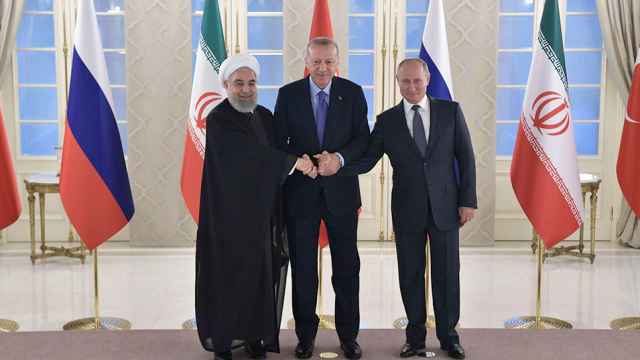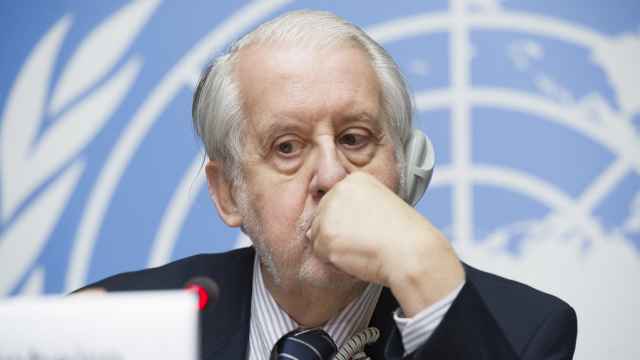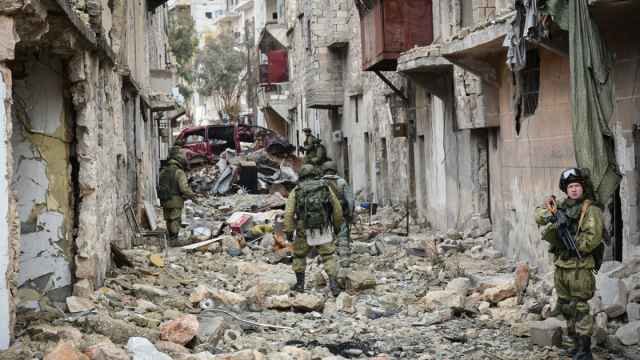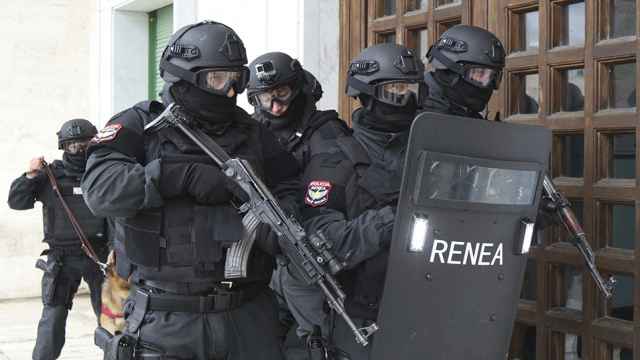After almost six hours of intense talks in Sochi, Russian President Vladimir Putin and his Turkish counterpart Recep Tayyip Erdogan struck an agreement on the fate of northeast Syria. The deal came on the heels of the U.S.-Turkey ceasefire deal struck on Oct. 17 which was used as a temporary step to create a new status quo in the region.
The new Russia-Turkey arrangement lays a good groundwork for the final settlement of the conflict in northeast Syria. This is not to say there aren’t going to be obstacles going forward, but the agreement has created a realistic path.
The plan envisages withdrawing of all Kurdish People’s Protection (YPG) fighters and their weapons to the depth of 32 kilometers from the Turkish-Syrian border, which should be finalized in 150 hours. As of today, Russian military police and Syrian government border guards will oversee the withdrawal of YPG forces and weapons to beyond 30 kilometers of the Turkish border.
After that, joint Russia-Turkey forces will patrol the area within 10 kilometers of the Syria-Turkey border.
After the talks with Erdogan, Putin phoned Assad to tell him about the agreement and its details. The Syrian president expressed his full support for the agreement and his readiness to implement it.
A win-win
Putin and Erdogan managed to strike a deal that takes into account both countries’ interests.
It is safe to say that they got what they wanted out of the meeting. Turkey received guarantees from Russia and Damascus that Kurdish forces will be removed from its border. It also received the right to monitor a 10 kilometers zone south of the Syrian border together with the Russian military police, creating a safe-zone — something Erdogan has wanted for years.
Russia, for its part, secured the deployment of Syrian troops in the country’s northeast, which restores Damascus’s control over a large swath of territory. It also means Erdogan de facto now recognizes Assad’s regime
Moscow also managed to curb Ankara’s appetite for Syrian territory to an area 10 kilometers deep and 150 kilometers long, which largely resolves Russian concerns about Syrian territorial integrity.
The new reality on the ground
The Putin-Erdogan deal creates a new reality on the ground where Russia, in effect, becomes a security provider for both the Turks and the Kurds.
Moscow increased its role in northeast Syria without a bullet being shot and now has a good chance of helping to relaunch Ankara-Damascus talks in the near future. Without such negotiations the final agreement on northeast Syria is impossible.
The temporary freeze of the situation on the ground in northeast Syria with the establishment of the Turkish safe zone and joint Russian-Turkish patrols might bring new opportunities for the Kremlin. Idlib and the northeast safe zone can become quid pro quo in future Russia-Turkey talks.
It is to be expected that the Kremlin will soon ask Ankara to completely leave northeast Syria. Once Kurdish withdrawal and disarmament are completed, there will be no need for Turkey to stay in Syria, and Moscow will surely push this narrative in order to restore Syrian territorial integrity.
Remaining challenges
Although the new Russia-Turkey deal on Syria definitely gives Moscow an upper hand, it also adds more responsibilities, burdens and risks.
First of all, U.S. forces are not leaving Syria completely. Donald Trump decided to leave about 200 troops to protect Kurdish-held oil and gas fields from ISIS, Russia, Syria and Iran.
Remaining U.S. troops might well play a spoiler role in keeping Moscow and Damascus from a complete takeover of northeast Syria and getting access to the desired oil and gas fields. In addition, we can never be sure that Trump won’t suddenly decide to redeploy his forces back into Syria.
Secondly, Damascus and the Kurds still have to negotiate the final political agreement which is not going to be an easy task, and it is going to be Russia’s job to make them strike a deal. Third, Russia will need to launch Ankara-Damascus talks, which will also be extremely difficult.
Although Turkey understands that the Syrian crisis needs to be settled, it is still not excited about the prospect of negotiating with Assad. The following weeks and months will demonstrate if the agreement is implemented successfully, and whether Russia uses its upper hand to address the remaining issues.
Islamic State is a terrorist organization banned in Russia.
A Message from The Moscow Times:
Dear readers,
We are facing unprecedented challenges. Russia's Prosecutor General's Office has designated The Moscow Times as an "undesirable" organization, criminalizing our work and putting our staff at risk of prosecution. This follows our earlier unjust labeling as a "foreign agent."
These actions are direct attempts to silence independent journalism in Russia. The authorities claim our work "discredits the decisions of the Russian leadership." We see things differently: we strive to provide accurate, unbiased reporting on Russia.
We, the journalists of The Moscow Times, refuse to be silenced. But to continue our work, we need your help.
Your support, no matter how small, makes a world of difference. If you can, please support us monthly starting from just $2. It's quick to set up, and every contribution makes a significant impact.
By supporting The Moscow Times, you're defending open, independent journalism in the face of repression. Thank you for standing with us.
Remind me later.








